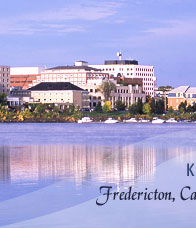Saskatchewan Job boom
11/19/2012
(Reuters) - As much of the world grapples with stubbornly high unemployment and overwhelming debt, the Western Canadian province of Saskatchewan is facing an enviable problem -- it has more jobs than it can fill.
"There's a bit of irony here frankly," Saskatchewan Premier Brad Wall said in an interview from Saskatoon, the province's largest city. "Our challenge, even up to five years ago, was we were losing people because there weren't the opportunities here.
"Now it's reversed, but not reversed enough. We need more (people)."
Saskatchewan's seasonally adjusted unemployment rate of 4.7 percent is second-lowest among Canada's 10 provinces after Alberta, and well below the national average of 7.4 percent in September.
The resource-rich province, with 1.1 million residents, is creating so many jobs the government recruited from Ireland earlier this year.
On Tuesday, Wall unveiled his Saskatchewan Party government's long-term plan, which aims to increase the population by another 100,000 by 2020, cut debt, and hire more immigrant workers.
Training programs for trades and aboriginal residents would also develop more workers.
The province intends to continue balancing its budget, while most Canadian provinces are struggling to reduce their fiscal deficits. It also means to cut long-term debt by C$400 million to C$3.4 billion by 2017.
By 2015, the corporate business tax would be reduced to 10 percent from 12 percent, even as the government is exploring ways to improve healthcare and education. It also plans on spending C$2.5 billion on infrastructure over the next three provincial budgets.
John Nilson, acting leader of the New Democratic Party, said the plan was full of "recycled ideas", and that it would delay actual infrastructure costs through partnerships with the private sector that would ultimately cost more in the long term.
"There's not sufficient dollars to do some of these things," he said.
Traditionally, Saskatchewan was known mainly as Canada's leading wheat and canola producer, and high grain prices have kept its farming business strong.
A 2008 spike in commodity prices sealed Saskatchewan's reversal of fortune by giving it the impetus to further develop its mining and oil businesses.
The province's population has grown for six straight years, after a long period of decline, according to Statistics Canada.
Its crude oil production has been bolstered by new technology that allows extraction from reserves locked in shale rock. Saskatchewan's mining industry, especially in potash and uranium, has attracted billions in new investments.
A parallel to Saskatchewan's turnaround lies just across the Canada-U.S. border, where oil-rich North Dakota boasts an unemployment rate of 3 percent, the lowest in the United States.
Saskatchewan's gross domestic product is expected to grow by 3 percent in 2012, the second-highest in Canada, according to the average private sector forecast, a provincial government official said.
(Reporting by Rod Nickel in Winnipeg, Manitoba)
|





